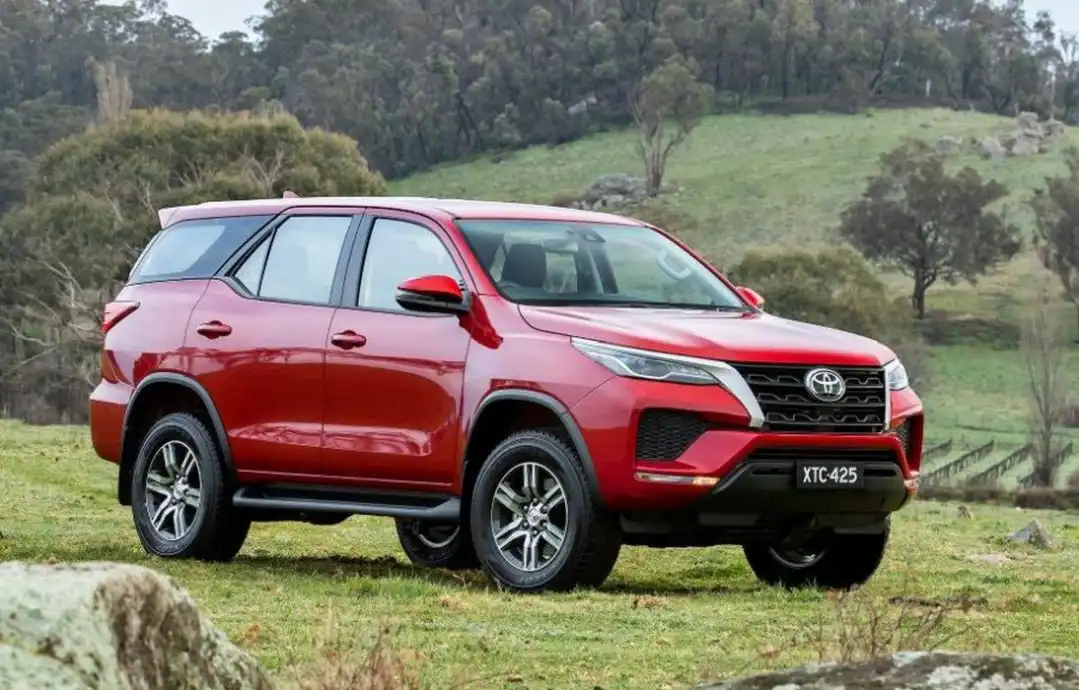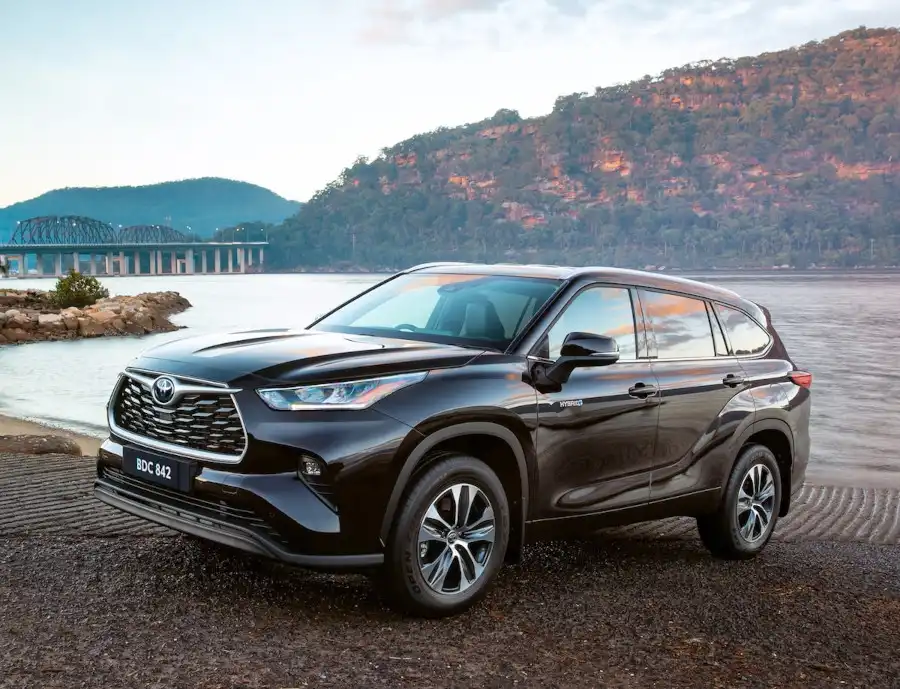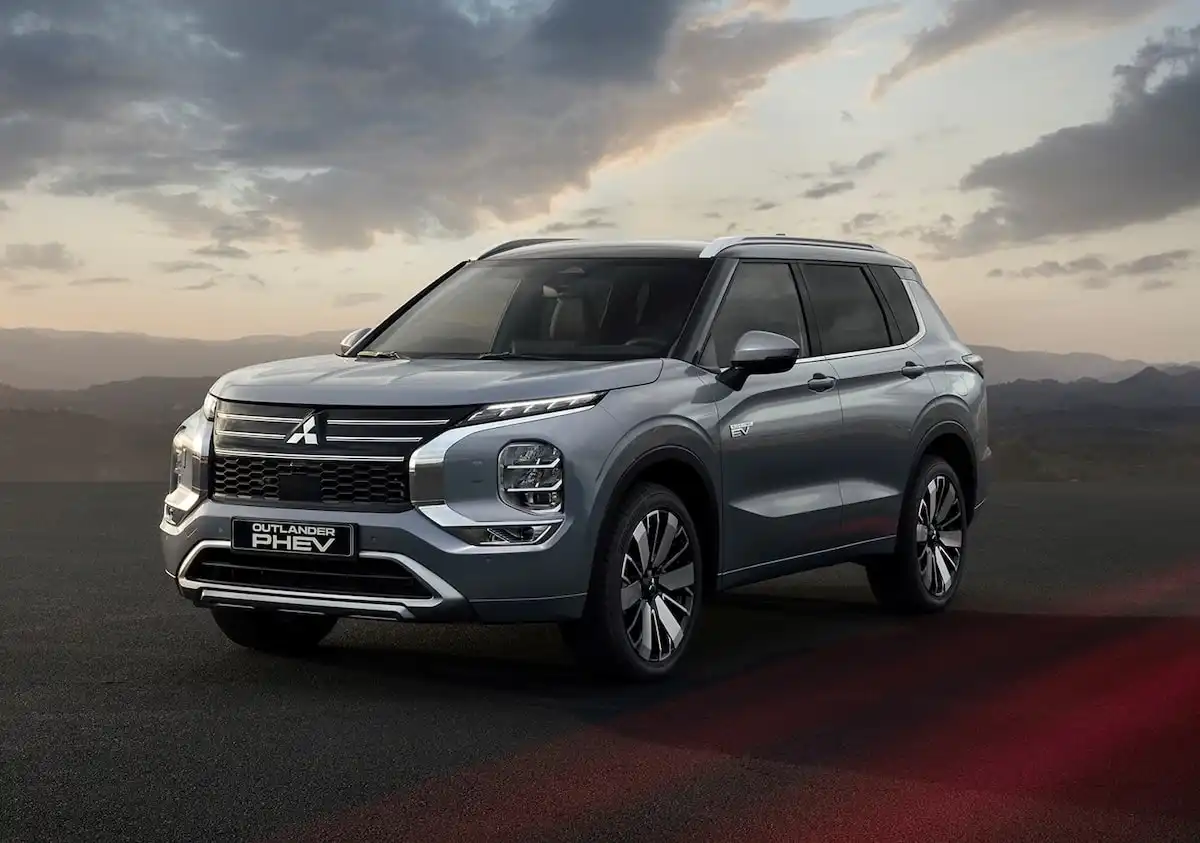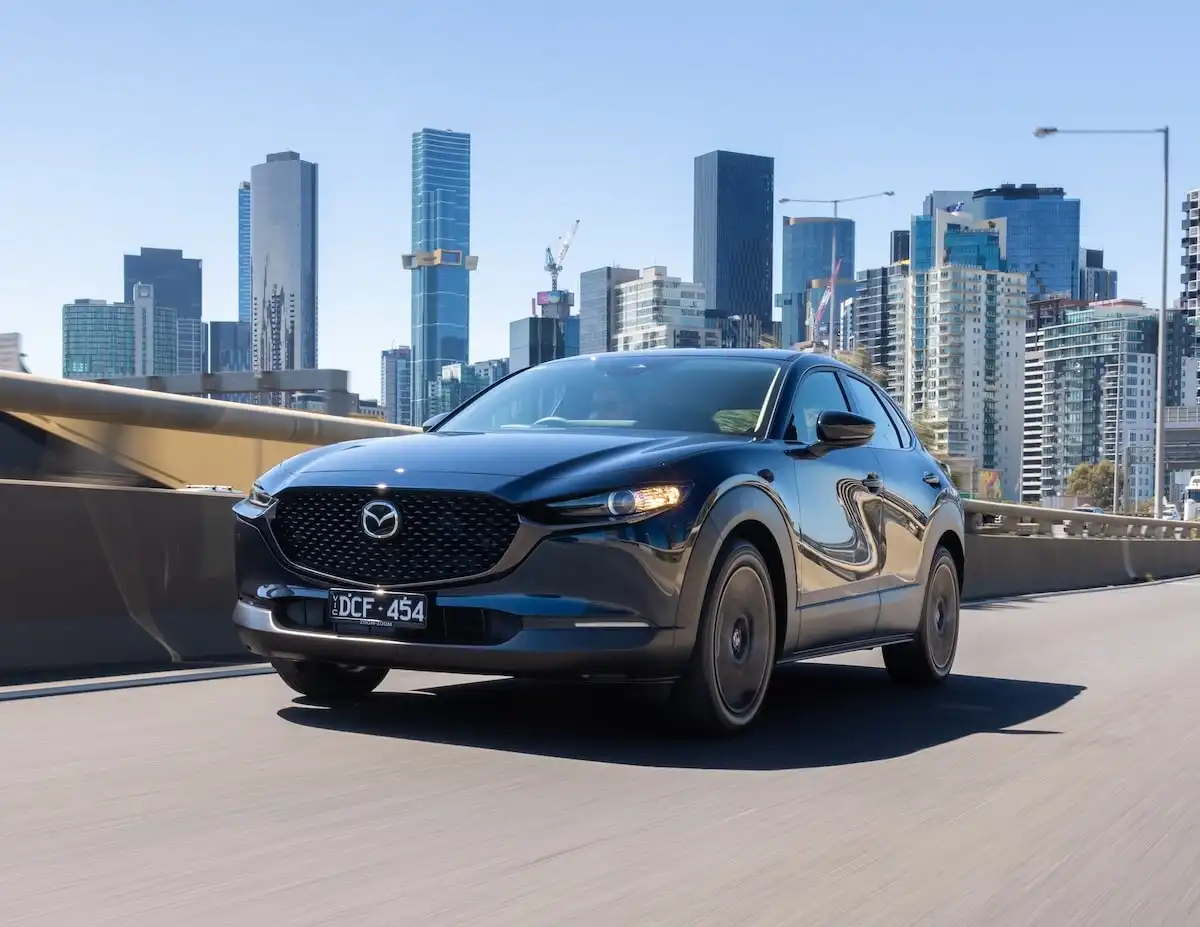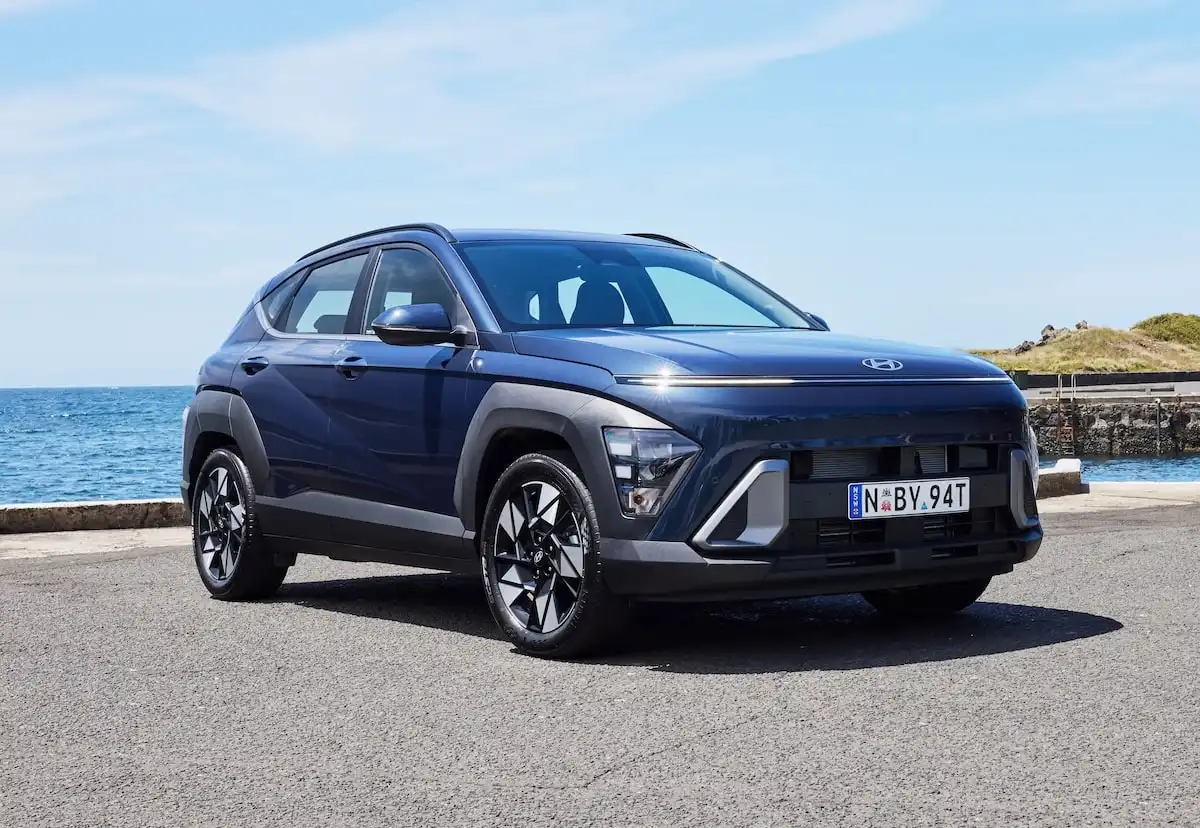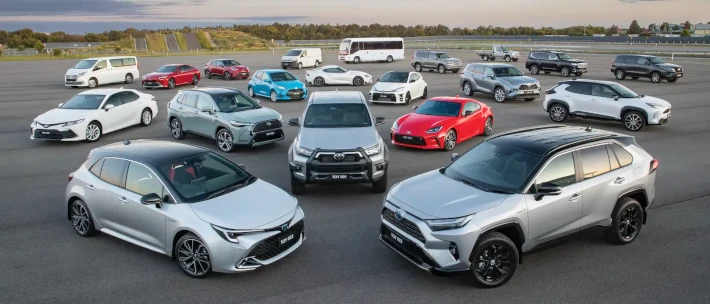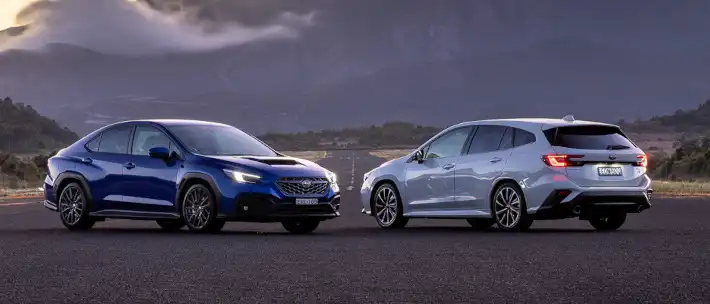With its platform borrowed from the HiLux workhorse, the Fortuner aims to combine family-friendly practicality with go-anywhere abilities, making it one of the more versatile seven-seat SUVs on the market.
All these abilities may well come at the cost of the everyday driving experience, though, so let’s take a closer look at the 2024 Toyota Fortuner to see how it stacks up as a daily driver and against its key rivals.
Toyota Fortuner Competition
Toyota Fortuner |
VS |
Isuzu MU-X |
| Ford Everest | ||
| LDV D90 | ||
| Mitsubishi Pajero Sport | ||
| GWM Tank 300 | ||
| SSangYong Rexton |
How Much Does the Toyota Fortuner Cost?
Toyota is keeping things simple with the 2024 Fortuner lineup, splitting the range into three variants.
The entry-level Fortuner GX is priced at $53,775, while the mid-range Fortuner GXL is priced at $58,895.
Opting for the range-topping Fortuner Crusade brings the price to $66,755.
Keep in mind that these prices are subject to change and do not include on-road costs.
How Much Can OnlineAuto Save You?
Using OnlineAuto’s car purchasing service, one of our car specialists can help you save and find the best value model for you.
Toyota Fortuner GX Specifications
| Model Date | 2024 |
| Make | TOYOTA |
| Model | FORTUNER |
| Series | GUN156R |
| Variant | GX |
| Body | 4D WAGON |
| Fuel type | DIESEL |
| Transmission | 6 SP ELECTRONIC AUTO |
| Drive | 4x4 |
| Engine | TCDI |
| Engine capacity | 2755 |
| Engine configuration | DUAL OVERHEAD CAM / 16 valves |
| Engine RPM | 3400.0 / 1600.0 |
| Cylinders | DT4 |
| Torque | 500 |
| KW | 150 |
| Fuel tank size | 80.0 |
| Fuel usage specs | 7.6 / 0 |
| CO2 | 201 |
| ANCAP security rating | 5 |
Get in touch with one of our Car Buying Specialists today.
Request a quoteWhat Features & Specs Does the Toyota Fortuner Have?
Toyota’s entry-level Fortuner GX comes riding on 17-inch alloys and picks up LED headlights, side steps, adaptive cruise control, a locking rear differential, keyless entry & start, an air-conditioned console box, a rear-view camera with front & rear parking sensors, a full-sized spare tyre and three-year membership to Toyota’s Connected Services suite.
Stepping up to the Fortuner GXL adds a set of LED fog lights, roof rails, dual-zone climate control, a downhill assist control system, rear privacy glass, chrome door handles, wheel-mounted paddle shifters and some infotainment upgrades.
Finally, Toyota’s range-topping Fortuner Crusade picks up 18-inch alloys, leather upholstery with heated, power-adjustable front seats, a powered boot lift, a surround-view monitor, wood trim pieces, an auto-dimming rear-view mirror as well as some safety and entertainment upgrades.
Toyota Fortuner Connectivity & Infotainment Features
All members of the MY24 Toyota Fortuner lineup pick up an 8.0-inch touchscreen infotainment display which, if we’re honest, is beginning to show some signs of its age.
The entry-level Fortuner GX and mid-range GXL receive a six-speaker sound system, with the latter picking up DAB+ digital radio and satellite navigation.
Upgrading to the range-topping Crusade adds an eleven-speaker sound system courtesy of JBL.
Each Fortuner variant also picks up a three-year subscription to Toyota’s Connected Services suite, which offers everything from SOS calls, stolen vehicle tracking, collision notifications, remote vehicle controls, as well as fuel levels and servicing information.
Does the Toyota Fortuner Have Wireless Apple CarPlay & Android Auto?
One area that the Fortuner is beginning to lag behind its more modern rivals is the infotainment tech.
The 2024 Fortuner still requires you to connect your phone via the USB port, with no wireless Android Auto and/or Apple CarPlay connectivity on offer.
Is the Toyota Fortuner Comfortable to Drive?
The Fortuner feels rock-solid on the road, though it’s not exactly the most user-friendly SUV of the segment.
To state the obvious, the Fortuner feels remarkably similar to its twin under the skin, the HiLux.
This will come as great news for buyers looking for a sturdy, tough-as-nails platform with a hearty turbo-diesel kick, but also comes with some day-to-day tradeoffs if you’re simply bumbling around town.
Under the bonnet, the Fortuner picks up the same 2.8-litre four-cylinder turbo-diesel engine kicking out 150kW of power and 500Nm of torque.
Power is thrown to either the rear wheels (2H) or all four wheels with both a 4H and 4L system via a six-speed automatic transmission that works well to blend shifts together smoothly.
Acceleration off the line is smooth and steady, with a hefty push on offer when you flatten the throttle for an overtake thanks to its torquey turbo-diesel beating heart with up to 3,100kg of braked towing.
On a county road and while bumbling around town, the Fortuner is a smooth cruiser, with the suspension package eating up bumps without an issue.
Present it with a low-speed roundabout or a cramped parking lot, though, and things get a bit less user-friendly.
With a heavy, hydraulic steering rack, the Fortuner requires quite a bit of effort to wrangle into a spot, giving its main rivals like the Ford Everest and Isuzu MU-X a slight edge on the day-to-day side of things.
Pick up the pace on an open road or the highway and the Fortuner claws back, with its sturdy platform making light work of rougher roads and proving a great match for almost anything Aussies can throw at it.
Is the Toyota Fortuner a Good Off-Roader?
As we’ve mentioned, the Fortuner is based on the iconic Toyota HiLux, which means it packs a punch when pushed off-road.
Underneath, the Fortuner receives the same body-on-frame platform, tough suspension hardware, tonnes of ground clearance and a part-time 4x4 system that adds confidence when hitting the dirt.
There’s also a locking rear differential for every member of the Fortuner range that offers maximum grip while tackling loose surfaces.
-
Ground Clearance: 216mm
-
Wading Depth: 700mm
-
Approach Angle: 29 degrees
-
Departure Angle: 25 degrees
-
Breakover Angle: 23.5 degrees
-
Gross Vehicle Mass: 2,800kg
Is the Toyota Fortuner Fuel Efficient?
While Toyota’s turbo-diesel proves itself a great powertrain for effortless cruising and off-roading, when you’re behaving yourself around town, it’s pretty economical, too.
Toyota says on a combined cycle, the Fortuner range consumes 7.6L per 100km, which is pretty decent for a vehicle of its size.
-
Fortuner Combined Consumption: 7.6L per 100km
-
Fortuner Highway Consumption: 6.8L per 100km
-
Fortuner City Consumption: 9.1L per 100km
Is the Toyota Fortuner Practical and Spacious?
The Fortuner benefits from a huge platform borrowed from the HiLux, and while there’s tonnes of space in the front and rear - it’s not the best seven-seat option in the segment.
Up fronts, the Fortuner gives those behind the wheel access to a tall driving position with healthy forward and side visibility.
Bulky C-pillars and folding third-row seats do, however, impede all-round visibility and while the flagship Crusade receives a surround-view camera, there’s a bit of acclimatising needed in lower-spec models to get comfortable.
While it’s certainly not the flashiest of the segment’s interior designs, Toyota’s layout for the Fortuner is, at least, familiar and ergonomic.
The high-rising dashboard houses physical climate inputs, the infotainment display and two gloveboxes positioned in front of the passenger’s seat.
Other storage options in the front of the cabin include a retractable storage tray behind the gear lever, bottle holders on each door sill and inside the centre console’s air-conditioned cooler box.
Move to the second row and the Fortuner has acres of space for those seated in the rear.
There’s a healthy amount of headroom on offer and tonnes of legroom, even while sitting behind a tall driver or front passenger.
The second row picks up air vents, grab handles, power outlets and a folding centre armrest, with two pairs of ISOFIX anchors and top tether mounts hiding behind the seatback.
While it’s billed as a seven-seater, the Fortuner doesn’t lead the segment when fully loaded.
There’s enough space for small kids to get cosy, though head and legroom are limited for anyone older to cramp into the third row.
All up, the Fortuner proves itself as a mighty capable family wagon and while it’s not the best in the seven-seat 4x4 segment, there’s significant acreage inside for family buyers.
How Big is the Toyota Fortuner’s Boot?
Toyota hasn’t published any official dimensions for the Fortuner’s boot, though reports say there’s 200L of storage on offer in seven-seat mode.
Fold the third-row seats away and you’ll unlock a total of 716L worth of boot space in a five-seat layout, while folding the rear bench unlocks a total of 1,080L.
While there’s a tonne of headroom on offer for taller items, the third-row seats that fold their way up to the sills, instead of a more conventional flat-folding design, do get in the way if you need to lug around tall, wide cargo.
That said, there’s acres of space in the Fortuner’s boot, especially with the seats folded, making it a great option for family buyers.
Is the Toyota Fortuner Safe?
The Toyota Fortuner is a strong performer when it comes to safety, with its tough platform and a hefty list of active safety equipment thrown in for all members of the range.
That said, some key safety features are reserved for the range-topping Crusade, which is something to keep in mind if you’re tossing up the base GX or mid-range GXL.
As standard, the Fortuner GX receives autonomous emergency braking with pedestrian and cyclist detection, adaptive cruise control, lane-keep assist with lane-departure alerts, a rear-view camera with front & rear parking sensors, as well as trailer sway control and seven airbags.
Unfortunately, key features like blind-spot monitoring, rear cross-traffic alerts and a surround-view monitor are reserved for the range-topping Crusade.
Does the Toyota Fortuner Have an ANCAP Safety Rating?
It sure does - a five-star rating.
The Fortuner picked up a five-star ANCAP safety rating after testing on its twin-under-the-skin, the HiLux scored the following marks back in 2019.
-
Adult Occupant Protection: 95%
-
Child Occupant Protection: 84%
-
Vulnerable Road User Protection: 88%
-
Safety Assist: 78%
What Warranty Does the Toyota Fortuner Come With?
Toyota offers the Fortuner range with a five-year/unlimited-kilometre factory warranty.
The company also offers ten capped-price services for the Fortuner, which totals $2,900 over the course of five visits to the dealership.
This breaks down at $290 per visit due to the Fortuner’s short six-month/10,000-kilometre service intervals.
Our Verdict: Is the Toyota Fortuner Worth it?
The Toyota Fortuner doesn’t try to water down its key selling points for families - and in that respect, you can’t help but admire it.
While some rivals are a little soft around the edges, the Fortuner doesn’t sacrifice any of its go-anywhere abilities or fundamentals of its workhorse platform, which will be great news to certain types of buyers.
For the everyday family buyer, the Fortuner is certainly worth a closer inspection, though it’s worth noting that its abilities do come with some small caveats on the daily driving experience, though nothing too major.
If you’re looking to upgrade to a new car, be sure to reach out to one of our car-buying experts who can help find you the best possible price.
Five Toyota Fortuner Specs You Need to Know
-
Five-year/unlimited-kilometre warranty
-
Five years’ capped-price servicing
-
Six-month/10,000-kilometre service intervals
-
7.6L per 100km combined cycle fuel economy
-
3,100kg braked towing capacity
Get in touch with one of our Car Buying Specialists today.
Request a quote